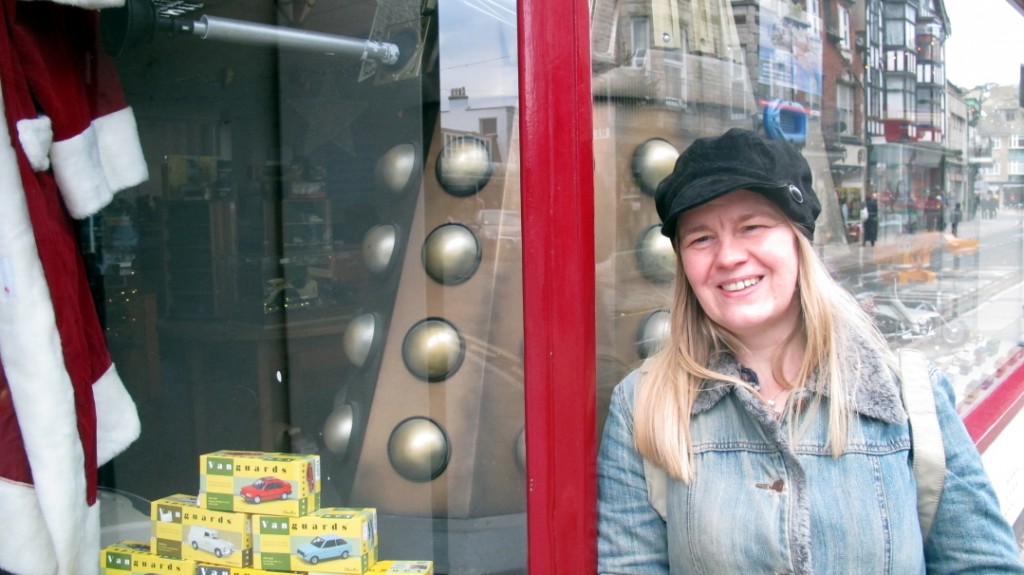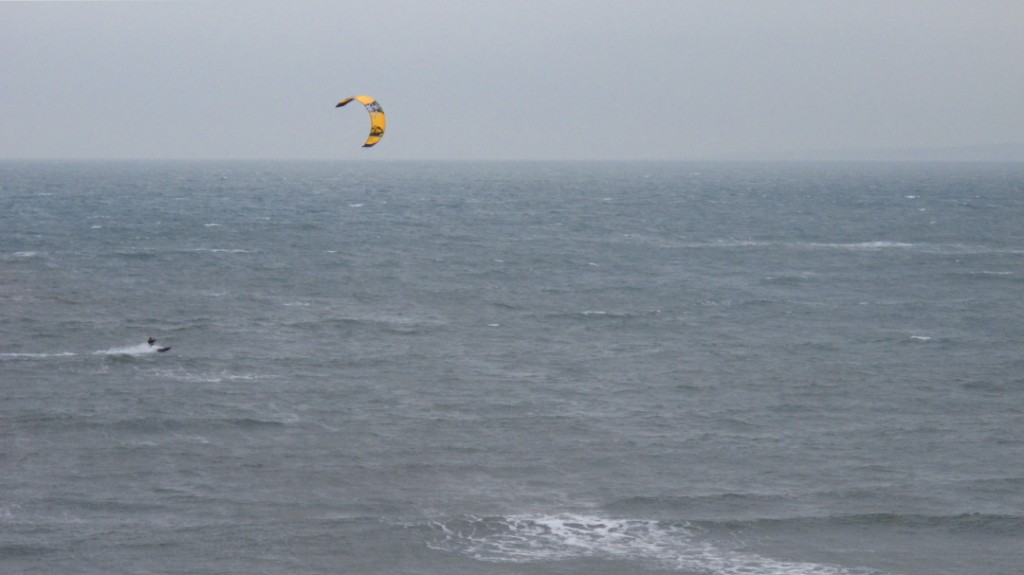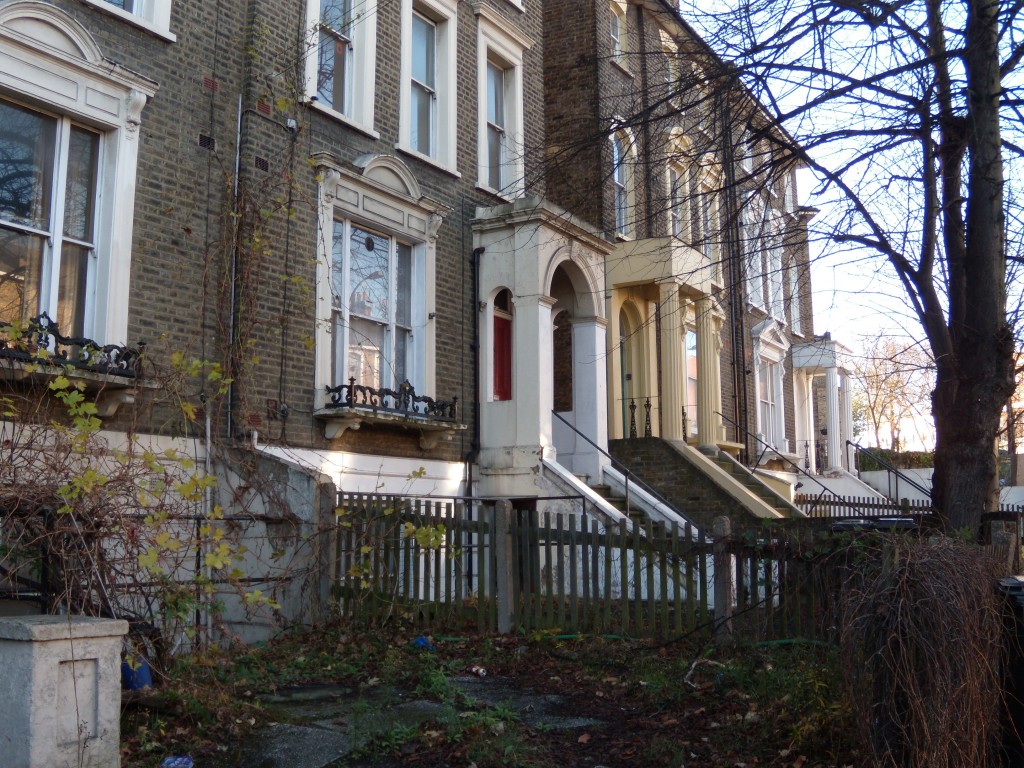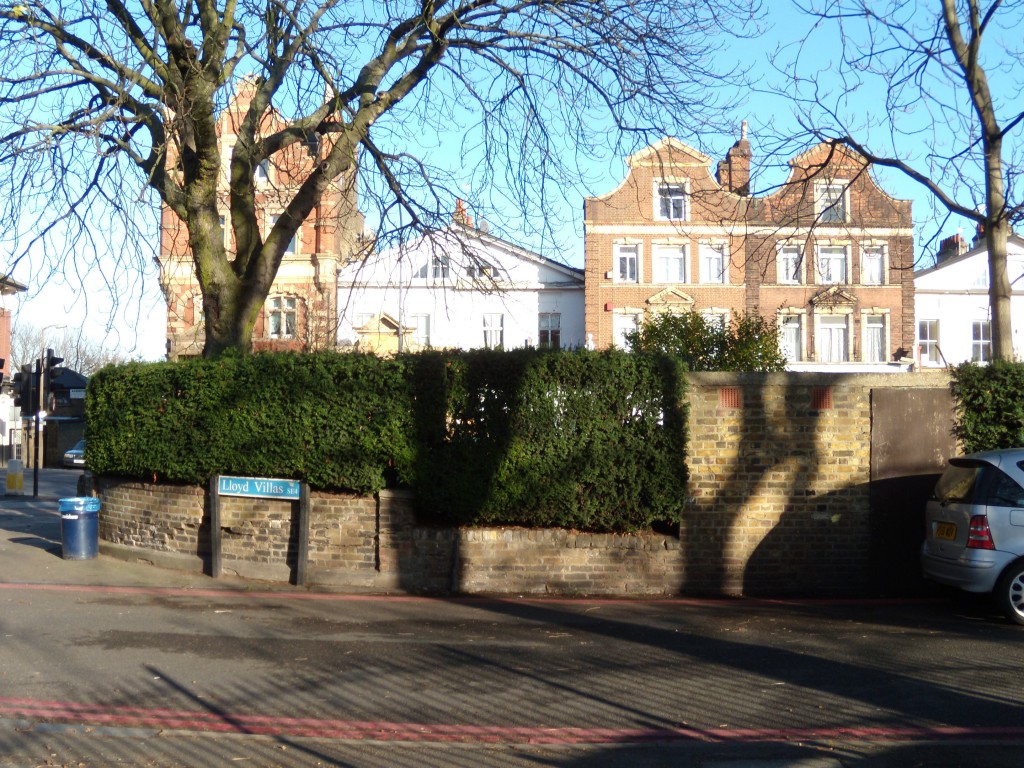My first real memories of Doctor Who begin in 1972 with The Three Doctors. I have spots and flashes before that – The Daemons, The Claws of Axos and Colony in Space flicker on the screen at the back of my mind like interrupted transmissions from an earlier era – but my fully cognisant awareness that I was witnessing something extraordinary start with Lord Omega and becomes continuous with The Green Death, the first adventure I remember fully as a story rather than as a series of vivid yet disconnected fragments. I found this story terrifying yet overwhelmingly compelling. It had characters I felt immediately passionate about. It had giant maggots, for God’s sake. By some miracle – and at six years old it seemed a miracle made expressly for me – it seemed that, at a set time each week and for twenty-five minutes, I could sit myself down in the living room and realistically expect to see monsters. I honestly cannot say where the desire to see monsters came from – only that this fascination with the fantastic has been an intrinsic part of my life and my imagination literally ever since I can remember, and that it seemed to come out of nowhere. My father always shied away from stuff like that and would only ever watch Doctor Who if I was there in the room to watch it with him. My mother was happy to let me amuse myself with it but for herself she dismissed it as nonsense, ‘all that Doctor Who nonsense.’
From The Green Death in 1972 to The Caves of Androzani in 1984 I scarcely missed an episode. From 1984 to the final episode of ‘Old Who’ in 1989 – a period that coincided with my time at university and was therefore less static – I did miss stuff but I always kept abreast of what was going on and have since caught up with all the episodes I didn’t see when they were originally aired. I’ve seen all of ‘Nu-Who.’ Every episode. In order. (God, that’s terrifying.)
My sentimental attachment to Doctor Who has been fierce and enduring. This is because it was there for me when I absolutely needed it. It gave form to my hazy imaginings, not only of what might be out there but what it might be possible to dream of, to conceive as story. Doctor Who introduced me to the concept of outer space, of time travel, of physical and imaginative worlds beyond our own. Doctor Who proved that it wasn’t just me that stayed awake at night worrying that there might be ‘monisters’ in the understairs cupboard. It was Doctor Who, in fact, that introduced me to science fiction. About five years after seeing The Green Death I graduated to The Time Machine and a little later to The Day of the Triffids, meatier inspirations no doubt and certainly more capable of bearing artistic scrutiny, but the whole point is that without the Doctor and the Brigadier and Sarah Jane Smith (absolutely my first ever role model) I might not have taken up with Wyndham or Clarke at all. It is for these reasons as well as the precious and indelible memories of childhood and childhood friendships that I continue to feel I owe Doctor Who a huge debt.
So – like finding out that an old comrade from Young Socialists has started voting Tory, or hearing the friend who first introduced you to Dostoevsky admit brightly that they really do enjoy reading Maeve Binchy – it’s painful to see the programme losing its way. Many devotees of the original show were very much doom and gloom when the BBC announced its return in 2004. They feared the memories they cherished would be ruined, that no contemporary reimagining could possibly live up to expectations and that on balance it was better not to try. I was not one of those people. I reasoned that whatever came of ‘Nu-Who’, my personal time-stasis around the Tom Baker years could not be breached, and anyway, I was eager to see what the new guys would do. Most of all, I was delighted to think that a whole new generation would be able to experience what I had experienced, to see the characters and situations in terms that would feel more relevant to them as opposed to being forced by their parents to watch and enjoy the dodgy black-and-white recordings from the 1960s. To have a Doctor of their own, in fact. It all sounded great to me.
The one thing I was not prepared for was for the programme to become less frightening. I realise it’s impossible for me to be as entranced and terrified by giant maggots now as I was then, but the tragedy that’s been happening to Doctor Who since 2005 has far more to do with the way its parameters have shifted than with the natural aging process of this particular fan. There are obvious things – the way the new single-episode-adventure format has abolished much of the tension, for one – but with the right kind of writing this needn’t have been a disaster.
What is a disaster is that the Doctor is no longer the Doctor, but a superhero.
The original conception of Doctor Who had him as a kind of maverick mad scientist, an alien being with a gerontian lifespan and certain travel privileges yes, but a supernatural being most certainly not. The Doctor was enigmatic, often cantankerous, and definitely fallible. When we saw Jon Pertwee or Tom Baker running from the Daleks we had the sense that he was was a) actually scared and b) in some danger of getting exterminated. He knew a bit more about the state of the universe than we did but – like a crazy uncle who had just returned from a near-fatal trip to the Amazon – this was simply because he was older and had travelled more widely. We had the sense, above all, that we were in the adventure together.
The Doctor we have now is more like a minor deity than a renegade scientist. He doesn’t just regenerate, he’s resurrected on a regular basis. His sonic screwdriver, once a nifty little gadget for picking alien locks, is now regularly used as a cross between a wizard’s wand and a light sabre. I’ve lost count of the number of times he’s saved the planet by magical means. In the Christmas Special on Sunday we saw him darting about a children’s nursery breathing life into fairy lights and magicking hammocks out of thin air like some kind of demented Mary Poppins. I think the nadir came for me in Series 5, when Mat Smith’s Doctor proved he was every child’s hero by playing all the positions on the football pitch at once.
Come on, guys. What is this shit??
It’s not just that Doctor Who has shifted over from science fiction into fantasy; the true nature of the catastrophe is that Doctor Who has become the worst kind of fantasy, that is, fantasy without rules or logic. The first thing anyone interested in writing speculative fiction must learn is that a fantasy world, however wondrous, must possess an internal logic to remain convincing. In the world of Nu-Who, where the Doctor is the deus out of every machina, there is no logic, there is only lazy writing.
Of course there have been exceptions. Billie Piper’s Rose, John Simm’s Master, Robert Shearman’s Dalek, Paul Cornell’s Human Nature, Neil Gaiman’s The Doctor’s Wife, Tom McCrae’s The Girl Who Waited all give us glimpses of what Nu-Who could have been and (dare we hope?) retains the possibility of one day becoming. Some might argue that if only Christopher Eccleston had stayed longer as the Doctor then none of this would have happened.
For fantasy to work, it must keep its edge. That doesn’t mean more monsters (necessarily – but they do help); what it means is taking the reader or the viewer into new territory. As soon as fantasy becomes comfortable it’s dead. Speculative fiction that no longer speculates is ……well, Friends, only with Daleks in.
Christmas evening saw me in full rant mode and swearing that this was it for me, I’d never watch another episode. Do I have such strength of character? I can’t answer that question. But isn’t it sad that the team behind this lazy excuse for SF – a team with some talent and not to mention huge financial resources at their disposal – have put someone who once so loved the series in this position?

Swanage, Boxing Day 2011 Photo by Christopher Priest (I made him do it)

Kite surfer, Kimmeridge Bay Dec 26th 2011






